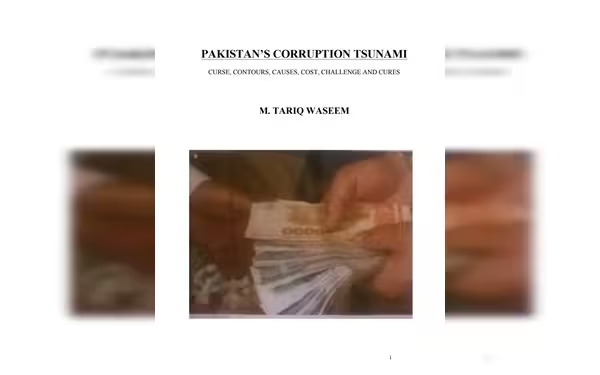Tuesday, July 2, 2024 03:30 PM
Sindh Province Grapples with Rising Prices and Corruption
- Influential individuals exploiting economic scenario for personal gain
- Transport sector under scrutiny for unfair pricing practices
- Corruption prevalent in retail markets and government departments
 Image Credits: Issuu
Image Credits: IssuuThe article discusses the challenges faced by Sindh province, including rising prices, market exploitation, and governance issues. It highlights the need to address corruption, ensure fair pricing practices, and protect vulnerable segments of society.
In recent months, inflation rates in the region have displayed a notable decrease, falling from 38 percent in May 2023 to 17.3 percent in April 2024. However, amidst this positive trend, the province of Sindh is facing a concerning situation with prices continuing to rise, causing distress among the local population.
Reports have surfaced alleging that influential individuals are taking advantage of the economic scenario, leading to a situation where the powerful benefit from the escalating prices. The transportation sector, in particular, has come under scrutiny for exploiting market fluctuations. Transporters tend to raise fares significantly when fuel prices go up but do not lower them when oil prices decrease, indicating a lack of transparency in pricing practices.
Concerns have been raised about fair practices in retail markets, with instances of encroachment, land sales, corruption, and embezzlement within government departments coming to light. This points towards a widespread issue of corruption across various levels of governance in Sindh.
The lower and middle classes have expressed their grievances, but their concerns seem to be disregarded. Historical data suggests that during military or caretaker regimes, stricter price controls and regulatory measures have resulted in lower prices for essential goods. In contrast, democratic administrations often witness economic exploitation of vulnerable segments of society, leading to soaring prices of basic necessities, medications, and medical services.
Criticism has been directed towards government officials and economists who claim a decrease in inflation, as they are accused of overlooking the struggles of the poor. The lack of action against exploitative market practices is believed to stem from regulatory bodies being complicit in the exploitation of the less privileged.
The situation in Sindh highlights the complex interplay between inflation, market exploitation, and governance issues. It underscores the importance of addressing corruption, ensuring fair pricing practices, and protecting the interests of the most vulnerable in society. As efforts are made to combat these challenges, it is crucial for regulatory bodies and policymakers to prioritize the well-being of all citizens and work towards creating a more equitable and transparent economic environment.













